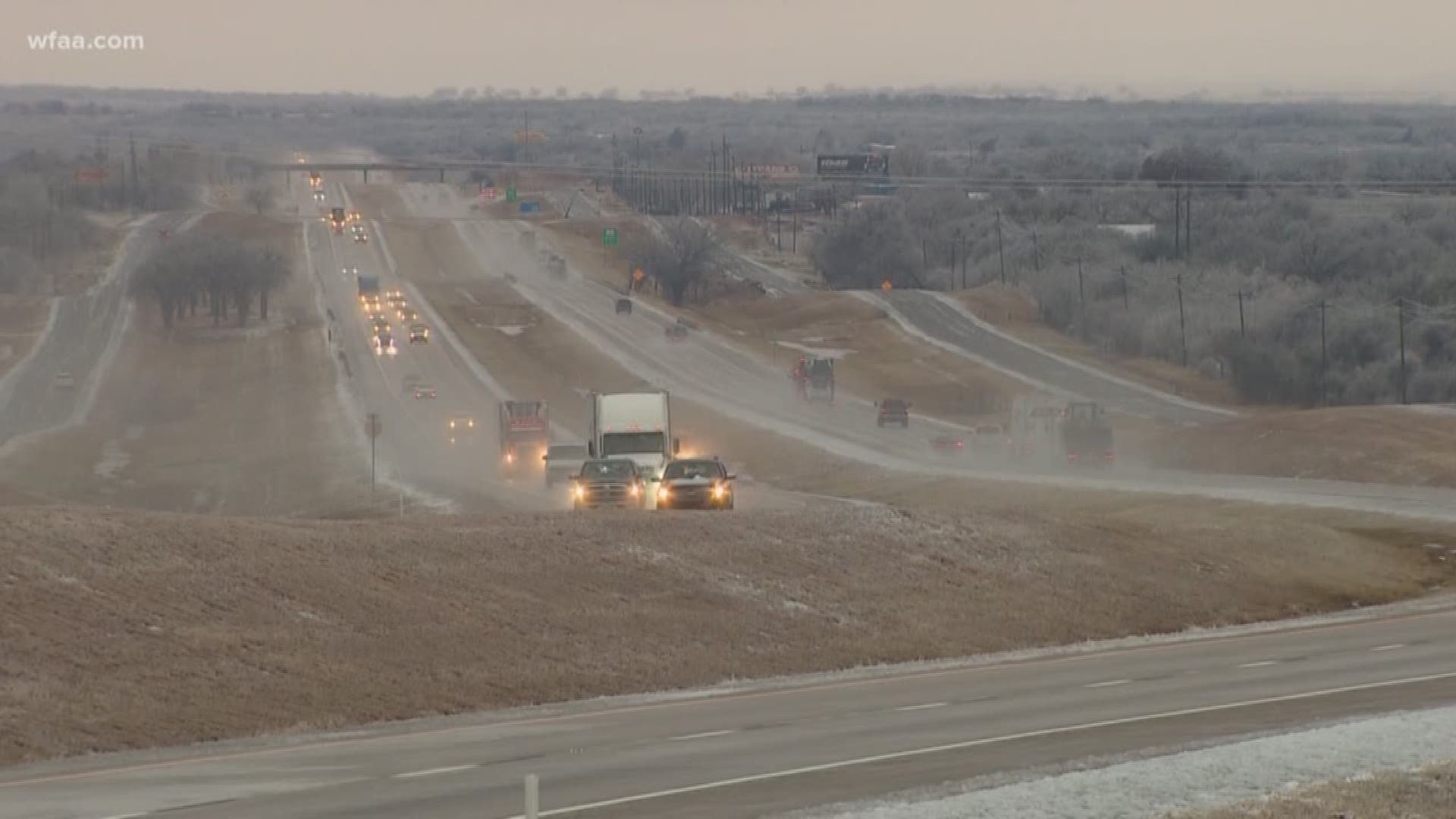FORT WORTH, Texas — If you're new to North Texas, buckle up. You're about to experience our version of winter-ish weather Monday into Tuesday.
"On average we get two or three little tastes of winter here every year," said Tom Bradshaw, who's the meteorologist in charge at the National Weather Service in Fort Worth.
But those "tastes of winter" are probably a bit different than what you might have experienced if you moved here from the Northeast or Midwest.
Bradshaw explained Monday why it's ice on the roads, not snow, you'll typically see here in North Texas.
"We get a lot of situations where we have warm air just above the surface and then a very shallow level of cold air, and that's the perfect ingredients for freezing rain or sleet," Bradshaw said.
And typically, because of our location, "We're right on the edge between just a bit too warm and it's all rain, or maybe it's cold enough to where it's freezing rain or sleet."
And that can make driving way more complicated than a simple snowfall.
To be clear, we are not expecting ice this week. But we are expecting cold temperatures, maybe some flurries and rain.
So whether you're new to Texas or not, you might have wondered: Won't all that brine the Texas Department of Tranportation was spraying on the roads Monday just wash off as soon as the rain hits?
TxDOT's Val Lopez says: Nope. The moisture will help the brine do its job.
"What we want to do with the brine is we want to apply it, we want it to dry," Lopez said. "Once precipitation falls, whether it's rain or sleet or freezing rain, it dilutes that dried brine that's on the roadway and that lowers the freezing point of that water."
In turn, that keeps the roads as ice-free as they can be.
We're just giving you a little science behind what we'll see over the coming months. But no matter what kind of precipitation hits the highways this week, remember to drive safely and keep a lot of space in between vehicles.
More on WFAA:
- E. coli outbreak linked to some Fresh Express salad kits
- Vanna White hosts Wheel of Fortune for the first time in show history
- Family of two murder victims say they are frustrated with Dallas police
- Democrats poised to unveil 2 impeachment articles vs. Trump
- Indiana University students raise money for cashier fighting breast cancer

